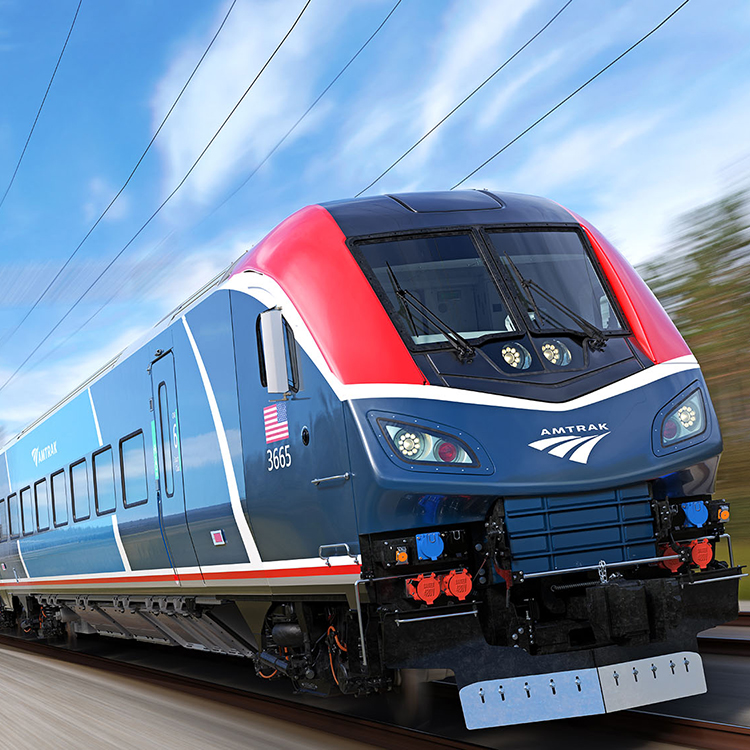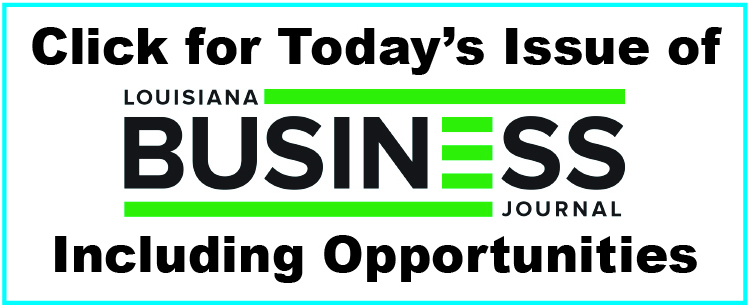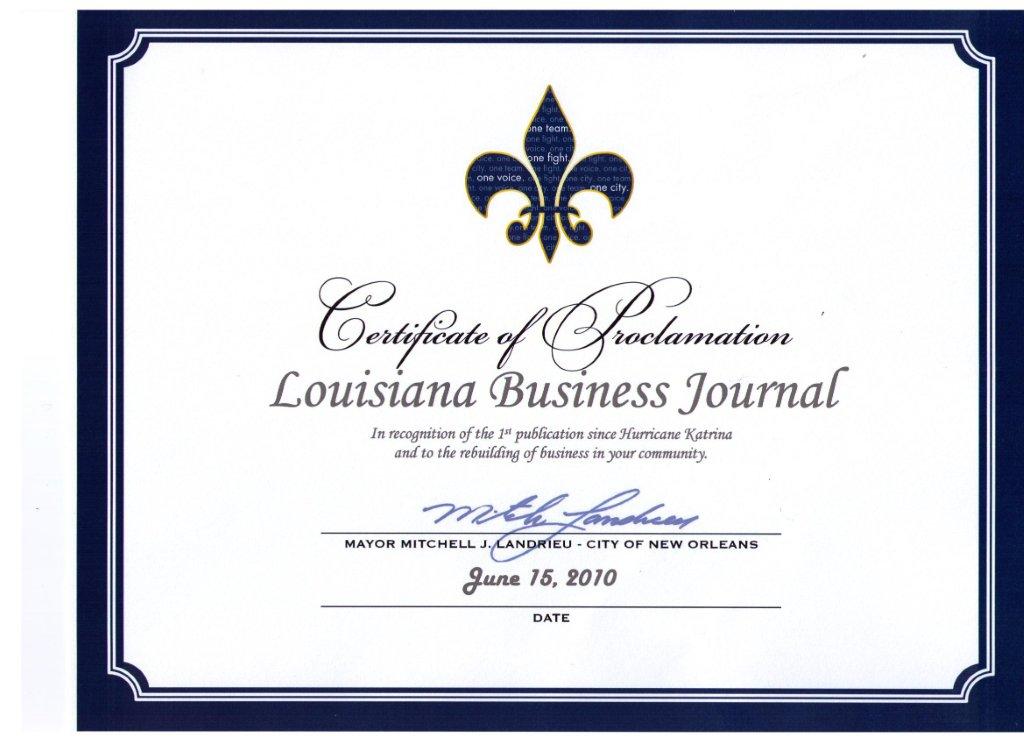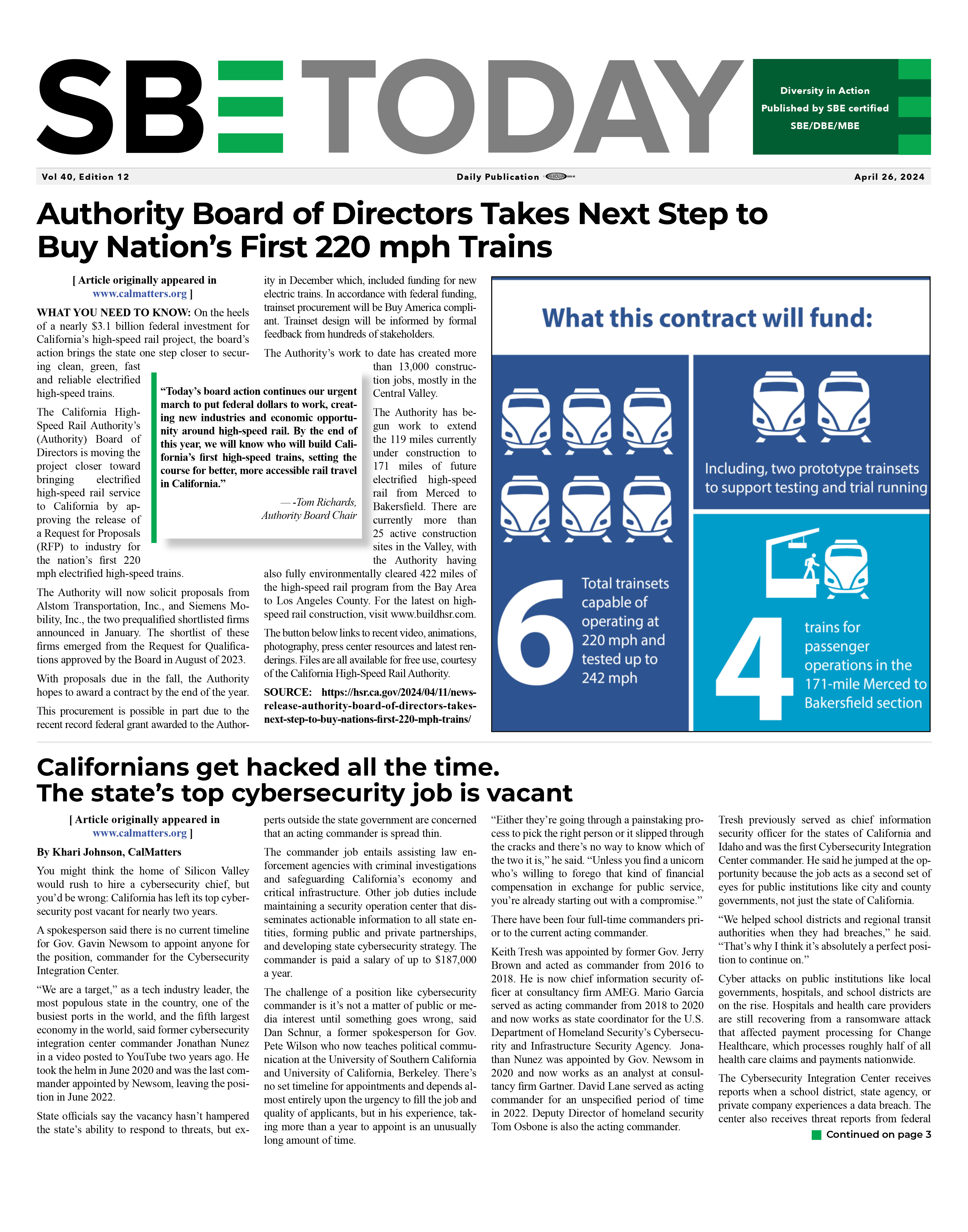New Gulf Coast Rail Infrastructure Funding
10/24/2023
WASHINGTON, DC—The Federal Railroad Administration (FRA) of the United States Department of Transportation (USDOT) recently announced that it has invested more than $1.4 billion from President Biden’s Bipartisan Infrastructure Law into seventy rail improvement projects in thirty-five states and Washington, DC. This is the largest amount ever awarded for rail safety and rail supply chain upgrades through the Consolidated Rail Infrastructure and Safety Improvements (CRISI) program.
 As part of President Biden’s Investing in America agenda, federal investments are tackling long-standing rail needs by supporting communities nationwide to help get people and goods where they need to be safely, quickly, and conveniently. Projects selected through the CRISI program, which is four times larger since President Biden signed the Bipartisan Infrastructure Law, support community safety through track improvements, bridge rehabilitations, fewer highway-rail grade crossings, upgrades on routes carrying hazardous materials, and more. Selected projects also improve connectivity, reduce shipping costs, increase resiliency to extreme weather, reduce emissions, and support workforce development. As part of President Biden’s Investing in America agenda, federal investments are tackling long-standing rail needs by supporting communities nationwide to help get people and goods where they need to be safely, quickly, and conveniently. Projects selected through the CRISI program, which is four times larger since President Biden signed the Bipartisan Infrastructure Law, support community safety through track improvements, bridge rehabilitations, fewer highway-rail grade crossings, upgrades on routes carrying hazardous materials, and more. Selected projects also improve connectivity, reduce shipping costs, increase resiliency to extreme weather, reduce emissions, and support workforce development.
“Under President Biden’s leadership, we are making historic investments in rail, which means fewer accidents and delays, faster travel times, and lower shipping costs for the American people,” said USDOT Secretary Pete Buttigieg. “These projects will make American rail safer, more reliable, and more resilient, delivering tangible benefits to dozens of communities where railroads are located, and strengthening supply chains for the entire country.”
 Projects will benefit every region of the country, with nearly two thirds of CRISI funding flowing to rural communities. Gulf Coast projects include: Projects will benefit every region of the country, with nearly two thirds of CRISI funding flowing to rural communities. Gulf Coast projects include:
Louisiana—The Rural Louisiana Short Line Rail Modernization Initiative Project (up to $16,800,000), Louisiana Southern Railroad (LAS)
The proposed project involves final design and construction activities for various track-related improvements, repairs or replacement of certain bridges and culverts, and grade crossing upgrades. The project aligns with the selection criteria by enhancing safety and ability to meet existing and anticipated demand as it will improve LAS’s mainline by increasing safety standards on a rail corridor that transports hazmat loads, eliminating operating capacity inefficiencies (e.g., increasing load carrying capacity to 286,000 pounds), and increasing resiliency. The project will also help eliminate blocked crossing occurrences near a medical facility. LAS, along with Canadian Pacific Kansas City Railroad, as project partner, will contribute funds totaling a twenty percent non-federal match. This project qualifies for the statutory set-aside for projects in Rural Areas. Louisiana—Mississippi-Louisiana Grade Crossing Improvement Project (up to $1,826,000), National Railroad Passenger Corporation (Amtrak)
The proposed project involves systems planning activities for a corridor study that will evaluate the safety, roadway connectivity, reliability, and potential improvements, including but not limited to trespassing prevention measures, to three hundred ninety-five highway-rail grade crossings on Amtrak’s City of New Orleans route through Mississippi and Louisiana. In partnership with Canadian National Railway and the states of Louisiana and Mississippi, Amtrak will conduct the study and prioritize the grade crossings to be improved, among other related tasks. The project aligns with the selection criteria by improving system and service performance and safety as it will facilitate safety improvements along this corridor that will also improve reliability of the service. Amtrak will provide a twenty percent non-federal match. This project qualifies for the statutory set-asides for projects in Rural Areas, new Intercity Passenger Rail, and trespass prevention.
Alabama—Blackbelt and Central Alabama Freight Rail Improvement Project (up to $15,870,960), Alabama Department of Transportation
The proposed project involves final design and construction activities to complete various track-related and bridge improvements on two short-line rail lines within the state, the Eastern Alabama Railway (EARY) and Meridian and Bigbee Railroad (MNBR). The project aligns with the selection criteria by improving system and service performance as it will increase maximum allowable speeds on both rail corridors, enhance storage capacity, and improve safety. EARY and MNBR will contribute funds totaling a 51.1 percent non-federal match. This project qualifies for the statutory set-aside for projects in Rural Areas.
Alabama—Reduce Extended Delays; Enhance Safety; and Invest in Growing Neighborhoods (R.E.D.E.S.I.G.N.) Project (up to $8,000,000), City of Birmingham, Alabama
The proposed project involves project development activities on two segments along Norfolk Southern Railway’s rail line for various track, bridge, signal, road realignment, and grade crossing improvements (including grade separations and closure of multiple crossings). The project aligns with the selection criteria by improving system and service performance as it will advance efforts to improve community safety and access to schools and residential areas with fewer blocked train encounters, and it will increase the fluidity of freight and Amtrak’s Crescent passenger rail operations. A combination of funding from the city of Birmingham, Alabama, city of Trussville, Alabama, and Norfolk Southern Railway will contribute a twenty percent non-federal match.
Alabama—Safety, Efficiency, Capacity Improvement and Service Restoration Project (up to $3,476,110), Huntsville and Madison County Railroad Authority (HMCR)
The proposed project involves final design and construction activities to replace the Aldridge Creek railroad bridge and complete various track-related improvements on HMCR's rail line. The project aligns with the selection criteria by enhancing safety, improving service performance, and restoring bridge load carrying capacity to 286,000 pounds to meet existing and anticipated demand. A combination of funding from HMCR, city of Huntsville, Alabama, and the state of Alabama will contribute a forty-five percent non-federal match. This project qualifies for the statutory set-aside for projects in Rural Areas.
Alabama—Transportation Investments for Employment and Safety (TIES) Project (up to $37,364,504), OmniTRAX Holdings Combined, Inc.
The proposed project involves project development, final design, and construction activities for track-related improvements and enhancements to certain grade crossings. The project aligns with the selection criteria by improving system and service performance as it will make state of good repair investments to an estimated combined one hundred thirty-five high-density track miles on three (3) OmniTRAX short line railroads—Illinois Railway, Alabama and Tennessee River Railway, and Georgia and Florida Railway, which will help sustain current FRA Class 1 and 2 track safety standards (varies by railroad) and maintain current timetable speeds. OmniTRAX will provide a twenty percent non-federal match. This project qualifies for the statutory set-aside for projects in Rural Areas.
Florida—Trespassing Identification and Classification System Project (up to $1,648,000), Brightline Trains Florida, LLC (Brightline)
The proposed project involves research and safety program activities to develop a software that utilizes artificial intelligence (AI) to collect reliable and precise data about trespassing locations and trespasser behavior. The project aligns with the selection criteria and administration priority by enhancing safety as it will help mitigate the higher number of trespassing incidents that occur in south Florida, and will provide real-time computer-driven analysis and data aggregation of trespass activity along the shared Florida East Coast Railway and Brightline corridor. In addition, the project will guide targeted infrastructure, enforcement, and education decisions for Brightline, local partners, and the Florida Department of Transportation. The project utilizes an innovative (AI based) research and safety program to address trespassing behavior in a corridor with one of the highest incidence of fatal trespassing incidents in the country. Brightline and Wi-Tronix will contribute a combined twenty percent non-federal match. This project qualifies for the statutory set-aside for projects to prevent trespassing.
Florida—Central Florida Rail Corridor Crossings and Trespassing Safety Improvements Project (up to $6,928,241), Florida Department of Transportation The proposed project involves final design and construction activities to complete various improvements at approximately one hundred ten highway-rail grade crossings (e.g., pavement markings, signage, surface replacement, and installing traffic signal equipment (pre-emption, pre-signals, and queue-cutter related, etc.), as well as complete trespassing prevention improvements at select locations. The project aligns with the selection criteria by enhancing safety as it will help increase the safety of pedestrians, motorists, two freight rail carriers (CSX Transportation and Florida Central Railroad), Amtrak, and Sun Rail commuter service at certain at-grade crossings along the Central Florida Rail Corridor. The project will also mitigate pedestrian trespassing to channel trespassers to the grade crossing or pedestrian crossings. The Florida Department of Transportation will provide a fifty percent non-federal match. This project qualifies for the statutory set-aside for projects to prevent trespassing.
Florida—Florida Panhandle Rail Resiliency and Connectivity Project (up to $23,198,945), Florida Gulf and Atlantic Railroad, LLC (FGA)
The proposed project involves project development, final design, and construction activities for various track-related improvements and upgrades to several bridges. The project aligns with the selection criteria by improving system and service performance and ability to meet existing and anticipated demand as it will help improve the one-hundred-mile-long stretch of FGA's mainline through Florida's panhandle. The improvements will expand operating capacity and ensure safety, as the railroad that transports hazardous commodities in an area that is consistently impacted by severe hurricanes. FGA is providing a thirty percent non-federal match. This project qualifies for the statutory set-aside for projects in Rural Areas.
Florida—Southwest Florida Rail Corridor Enhancement for Growth Project (up to $9,600,000), Seminole Gulf Railway
The proposed project involves project development, final design, and construction activities for track-related improvements along an estimated twelve-mile segment of Seminole Gulf Railway’s rail corridor. The project aligns with the selection criteria by improving system and service performance and ability to meet existing and anticipated demand as it will improve operations and reliability with increased travel speeds and load carrying capacity, as well as substantially reduce maintenance costs and track defects. Through interchange connects with CSX Transportation and its broader rail network, the project will also help Seminole Gulf Railway to enhance its economic competitiveness. Seminole Gulf Railway will provide a twenty percent non-federal match. This project qualifies for the statutory set-aside for projects in Rural Areas.
Florida—A Comprehensive Approach to Promoting Railroading Careers and Developing the Current Rail Industry Workforce (up to $17,073,949), University of South Florida
The proposed project involves rail industry workforce development activities through actions including, but not limited to, targeted outreach to elementary and secondary education students, internship programs for future railroaders and rail researchers, delivery of training, and workforce development programs that include emerging technologies training. The project aligns with the selection criteria by improving the ability of the future workforce to meet existing and anticipated demand as it will help address current challenges, such as an aging workforce and critical skill gaps, and make strides to stabilize and grow the rail industry workforce. A combination of funding from ENSCO, Inc., Colorado State University-Pueblo, Michigan Technological University, Oregon State University, San Jose State University Research Foundation, University of Hawaii, University of Nebraska-Lincoln, and the University of South Florida will contribute the twenty-three percent non-federal match.
Mississippi—Gulf Coast Corridor Improvement Project (up to $178,435,333), National Railroad Passenger Corporation (Amtrak)
The proposed project involves project development, final design, and construction activities for various track and signal-related improvements, upgrades to certain grade crossings, and improvements to certain stations along a key rail corridor in the Gulf Coast region, from New Orleans, Louisiana, to Mobile, Alabama. The project aligns with the selection criteria by enhancing competitiveness, reliability, and ability to meet existing or anticipated demand as it will help facilitate the introduction of intercity passenger rail service (two round trip trains per day) while mitigating potential adverse impacts to freight operations from CSX Transportation, Norfolk Southern Railway, and the Port of Mobile, as well as help achieve targeted trip times and service reliability. The project also aligns with the administration’s priority to transform the national rail network by encouraging the development of new intercity passenger rail. A combination of funds from Amtrak, the states of Mississippi, Alabama, and Louisiana, CSX Transportation, and Norfolk Southern Railway will provide a twenty percent non-federal match. This project qualifies for the statutory set-asides for projects in Rural Areas and New Intercity Passenger Rail.
Mississippi—Gloster Southern Railroad Restoration Project (up to $52,000,000), Town of Gloster, Mississippi
The proposed project involves final design, right of way acquisition, and construction activities for various track-related improvements, upgrades to certain grade crossings, and rehabilitation of multiple bridges and culverts. The project aligns with the selection criteria by improving ability to meet existing and anticipated demand and enhancing safety as it will reestablish rail service, discontinued in 2009, on an estimated thirty-five-mile segment of Gloster Southern Railroad and will serve existing businesses in an area with historically disadvantaged communities in Louisiana and Mississippi. Restoring the rail line will help reduce emissions, foster economic development, and improve safety. Gloster Southern Railroad’s private partners, CLAW Forestry Services, LLC, and Tatum Gravel, LLC, will provide a twenty percent non-federal match. This project qualifies for the statutory set-aside for projects in Rural Areas.
Texas—Downtown Laredo Rail Corridor Safety Planning Project (up to $4,000,000), City of Laredo, Texas
The proposed project involves project development activities for improvements to numerous grade crossings on the Laredo Rail Corridor. The project, which is being done in partnership with Canadian Pacific Kansas City Railroad (CPKC), aligns with the selection criteria by enhancing safety as it will help advance efforts to close certain at-grade crossings, build grade separated structures, and install gate and safety improvements at certain at-grade crossings. Also, this project, if built as part of a future phase, will improve safety on the Laredo Corridor, improve efficiency and mobility on a vital cross border trade route, and support expanded capacity on CPKC’s rail network. The project will improve supply chain efficiency on a critical cross-border trade corridor and supports the key administration goal of safety. CPKC will contribute a twenty percent non-federal match.
Texas—Rio Valley Rail Capacity Improvement Project (up to $3,500,000), Rio Valley Switching Company (RVSC)
The proposed project involves final design and construction activities to complete track-related improvements and upgrades to multiple bridges along an estimated fifty-mile-long corridor on RVSC’s rail network. In sections where there is Excepted track standard, the improvements will be built to FRA Class 1 track safety standards; in other sections, the project will maintain current FRA Class 1 track standards. The project aligns with the selection criteria by improving system and service performance and safety as it will improve rail operations and safety to accommodate project growth in the Rio Valley region, as well as continue interchange services with Union Pacific. RVSC will provide a thirty percent non-federal match.
Texas—The Sunray Agricultural Supply Chain Efficiency Project (up to $7,342,032), Texas North Western Railway Company (TXNW)
The proposed project includes project development, final design, and construction activities for track-related improvements and replacement of certain bridges. The project aligns with the selection criteria by enhancing safety as it will modernize the TXNW, resulting in reduced risk of derailment, accommodate the 286,000-pound unit grain trains, and reduce emissions by allowing for the utilization of larger, more modern locomotives—including those of BNSF Railway—to access a grain elevator. Also, the project will help TXNW sustain interchange services with BNSF Railway. TNW Corporation, owner of TXNW, will provide a thirty percent non-federal match. This project qualifies for the statutory set-aside for projects in Rural Areas.
“For years, the CRISI Program has helped to maintain and modernize America’s freight rail network, and it’s the only federal grant program prioritizing smaller, short line railroads vital to our nation’s economy and regional supply chains. With unprecedented levels of funding through President Biden’s Bipartisan Infrastructure Law, FRA is advancing even more projects and laying the groundwork for further transformation,” said FRA Administrator Amit Bose. “The selected projects will tackle issues facing communities and invest in a twenty-first century rail network yielding greater benefits—faster and more reliable deliveries of goods, safer communities, cleaner transportation, and more jobs and workforce development opportunities.”
While the majority of selected projects support freight rail safety and supply chains, CRISI investments are also helping to expand world-class passenger rail to more communities nationwide. Investments in Virginia will result in two new Amtrak round trips and three new commuter rail round trips on the RF&P corridor between Washington, DC, and Richmond—a critical link between Northeast and Southeast states—while also improving the fluidity of CSX’s freight network. In California, two additional daily round trips will be added to the Capitol Corridor between the cities of Sacramento and Roseville, and a project eliminating grade crossings in the Central Valley will bring high-speed rail one step closer to becoming a reality. Back To News |
|
|
|
|
||
|
© 2024 Small Business Exchange, Inc. |
||








